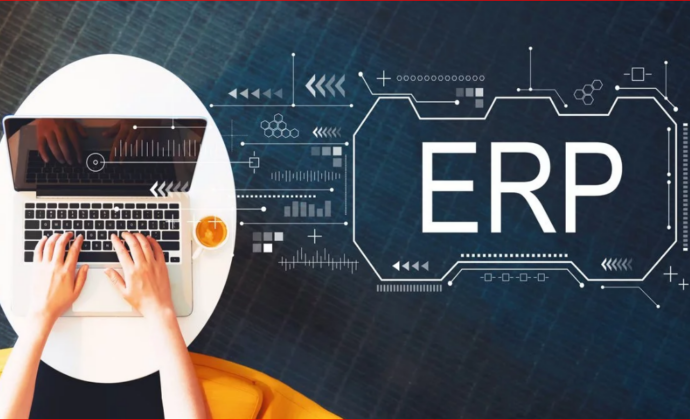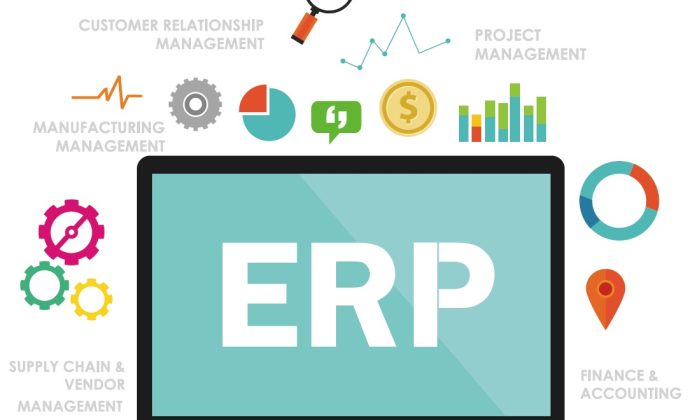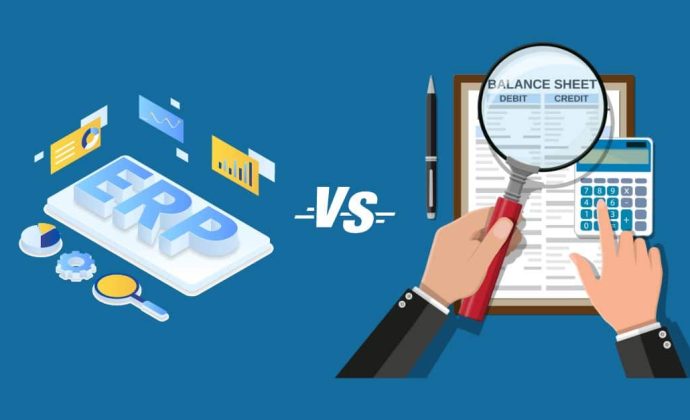The term ERP software for the education industry has been heard and discussed among schools, colleges, universities and other institutions for quite some time now. It has emerged as the best solution when dealing with large amounts of data. In a year, your educational institutions gather tons of information on your students, alumni, teachers, staff, courses, fees, assets, lesson plans and lots more. However, using this information is almost impossible without the right school ERP system in place. The software would help you to analyze the recorded data and then make data-driven decisions. School management system has been established to enhance the productivity of all the campus activities as proved by the institutes that have already adopted it and have realized efficient handling of all the activities & better management of all the information. In this article, we will discuss how ERP system is transforming education sector and helping different stakeholders involved: What is Education ERP Software? An ERP system in the education sector is a complex application that aims to coordinate and consolidate all the tasks and divisions of an educational establishment. Just like in other industries, an ERP system in the education sector integrates various functions like administration, academics, finance, and human resources, among others, to operate cohesively and share information. What makes ERP software different from other digital solutions is its ability to be customized. With ERP, adding additional features is easy and makes remote access sooth. These systems are designed to address the complex needs of schools, colleges, and universities. Why is ERP Essential to Educational Institutes? From an Institution’s Point of View An ERP system simplifies the functioning of the institution in regard to departments and tasks. It can facilitate different tasks to reduce staff workload and costs. For instance, automated marketing and communication responses can be faster. The fees can be collected online, as can the admission, and this makes both the processes to be more effective. All of these aspects significantly enhance the overall student experience, which remains the key factor to expand the business. From a Student Point of View It is important to identify that an ERP solution provides a multitude of advantages for students. This includes such things as timetables, coursework and so on which can all be accessed via the use of self-service interfaces. This enables students to get a customized learning environment, ask more questions, interact with their instructors more and get all the information they want just by clicking a button. From a Facility Member Point of View From a faculty member’s point of view, an ERP entails in effecting time through the elimination of a number of activities that would otherwise have to be undertaken manually. The system can also be used by faculty to quickly and efficiently improve relations with students and other departments and to upload course material, submissions and gradings from one centralised easy to use system. This in a way improves the general teaching and learning process. Benefits of Implementing School ERP Software There are several advantages that come with ERP Management which revolutionize the functioning of schools and colleges to be efficient, transparent and student-centric. Here are the key advantages: Streamlined Administrative Tasks School ERP software helps in managing administrative transactions such as admission, attendance, fees collection, and academic records. This cuts down on paperwork, saves time and overall productivity, thereby freeing up time for the staff to concentrate on academic performance and students. Improved Communication and Collaboration In any educational organization, communication is a critical component towards the achievement of the goals of the institution. Some of the features of School ERP systems include messaging platforms, online portals, and mobile applications for teachers, parents, students, and faculty administrators. Parents can also receive their child’s progress, school activities, and notices, which can enhance school-parent cooperation and guarantee timely actions when needed. Enhanced Student Performance Monitoring Using school ERP software, the teachers have the ability to monitor and evaluate students’ performance in terms of their grades, attendance, and extracurricular activities among others. It assists in finding out the areas of strength and weakness, planning and implementing individual learning programs and providing individual and group support leading to improved academic performance. Efficient Resource Management The use of school ERP systems makes the management of resources like classrooms, libraries, and laboratories easy. They coordinate resources for booking, inventory control, and maintenance planning, and they also avoid resource clashes or unnecessary consumption. Seamless Academic Planning and Scheduling It helps in the creation of the timetable by taking into account some of the factors which include the availability of teachers and the number of students in a class among others. It also follows cases of substitution and leave and ensures that there are minimal interferences in the timetable which leads to more teaching time hence improving the learning process. Enhanced Parent Engagement Parents get an easy way of accessing information on the child’s performance, attendance, homework, and grades. This enhances the parent’s stake in the child’s education and improves the parent-school relation thus creating a good working relationship for the child. Conclusion ERP in the education industry is changing the way educators manage, track and address issues. With an advanced AI-integrated ERP solution, decision-making and performance tracking are as simple as checking food in a fridge. In simple words, an ERP solution helps not only administration staff but also the management team, parents and teachers. It simplifies data keeping, makes easy access & makes monitoring easy. Upgrade your school management system using the best ERP solutions from SMB Solutions ! Simplify tasks, improve information exchange and achieve higher results. Get in touch with us today to transform your educational institution!
Role of ERP System in Education System











